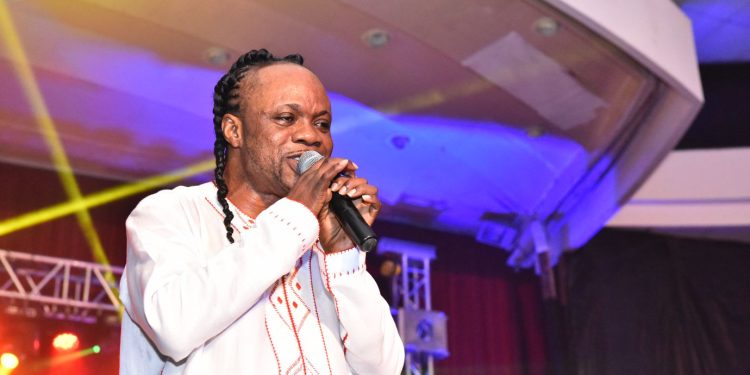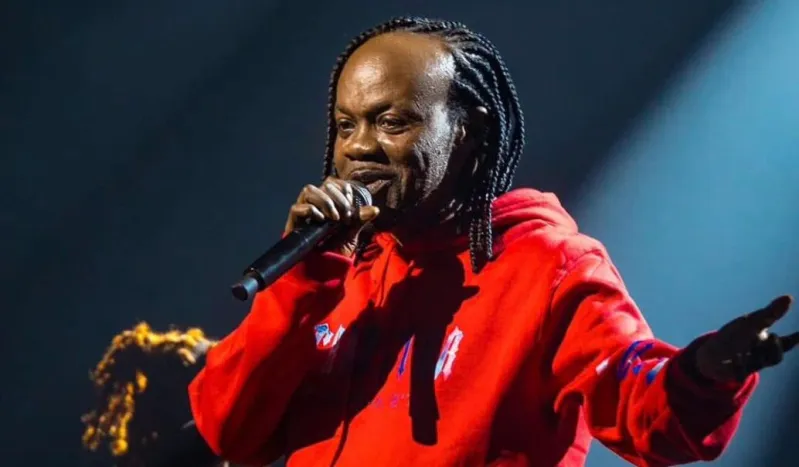Opinion
A LETTER TO GES

By: Ebetu ThePoet(0540565239)
(18: 04: 2025)
Dear Ghana Education Service,
May peace find you at your desks,
May strength walk with your every endeavour,
And may wisdom light your path in these testing times.
I remember your footprints, deep and long
Carved since the days of Osagyefo Dr. Kwame Nkrumah,
When your touch shaped boys into men,
And girls into women of purpose.
For this, I bow my head in thanks.
But with respect, I seek your listening ear.
Permit me, to lay bare before you
The bleeding wound of indiscipline
In the heart of our schools
Where structure once stood, chaos now dances.
Where future leaders are moulded,
The mould is cracking.
And the rot is seeping deep,
Deeper than chalk can write.
Let me take you back
To the time when school was school.
When teachers’ glance was instruction,
And their words, law.
When children stood at the mention of “Good morning, Sir,”
And sat only with permission.
When the cane was not a weapon,
But a compass pointing to better ways.
When a teacher’s pocket was empty,
Yet his soul was full
Full of pride, purpose and prestige.
When GES stood firm behind the teacher,
And the home held hands with the classroom.
So, what has changed?
What turned the chalkboard into a battlefield?
What clipped the wings of teachers
And handed them shackles instead?
What made the student a law unto themselves?
Today, students walk into class
With hearts full of contempt
And hands trained not for pens,
But for attack.
Have you heard of the O’Reilly incident?
The stabbed eye?
The blinded child from the Adventist gunshot?
These are not tales, GES
These are screams muffled beneath your silence.
What would you do
If the bleeding eye was your son’s?
If the blinded girl was your daughter?
If the trembling teacher was your spouse
Held hostage by a law meant to protect
But now protects wrongly?
If your own child sat in a classroom
Where fear teaches louder than the curriculum,
Would you still fold your arms?
Why have you kept the pockets of teachers mute,
And worse: stripped them of their voice?
Why is discipline now a taboo
And correction a crime?
Are we building a future or a facade?
Is this the education we fought for?
Where a teacher dares not shape a child,
And a child dares everyone?
We remember the days of Mensah and Dede,
When school was more than books
It was a village shrine of values,
Where children were shaped into gold.
Where the teacher’s word mended homes,
And the school served the nation
As both a wellspring of wisdom
And a fortress of discipline.
GES, I write not to condemn
But to cry out.
The soul of education is fading.
The fire is dim.
And if all hands do not rise now,
The taste of learning will sour forever.
Let us not wait until schools become tombs of silence
And classrooms, corridors of chaos.
The elders say, “If the drumbeat changes, the dance must too.”
The dance is dangerous now
And we must ask:
Will you change the beat?
Or shall we dance ourselves
Into darkness?
We call on all:
GES, parents, chiefs, lawmakers, citizens.
Let us act, and act now.
For if the tree of education dies,
What shelter shall Ghana’s future find?

Opinion
“Makra Mo”: A Legend’s Farewell

Ghana has lost not just a musician, but a generational spirit. The man born Charles Kwadwo Fosu, known as Daddy Lumba, died peacefully on Saturday, July 26, 2025. He was 60. His death, confirmed by the family, plunged the country into mourning, with tributes pouring in.
The BBC ran the headline, “Greatest in 100 Years,” capturing in just four words what generations of Ghanaians have felt in their hearts: that Daddy Lumba was not merely a musician, but a once-in-a-century phenomenon, a lyrical prophet, a musical chameleon, a spiritual father of Ghanaian highlife, and a voice that cradled the nation’s joy and pain.
With over 30 albums and about 200 songs, it was widely said, “Daddy Lumba has a song for every Ghanaian”. Not even one was a bad song. For many Ghanaians, he was a cultural icon, and his music touched countless lives.
Born on September 29, 1964, in Nsuta, Ashanti Region, Daddy Lumba emerged from humble beginnings to become one of Ghana’s most iconic musicians.
In the 1980s, life took him to Germany, where his music career took root. His career, spanning over three decades, began with the release of “Yereye Aka Akwantuo Mu” alongside fellow musician Nana Acheampong under the moniker Lumba Brothers, an album that introduced his versatile voice and knack for storytelling. That album changed the landscape of modern highlife music and marked the birth of his solo career that would go on to redefine Ghanaian music.
Daddy Lumba’s music evolved with the times, blending traditional highlife with contemporary rhythms, earning him accolades and a revered place in the hearts of both young and old. His ability to address universal issues such as love, betrayal, mortality, resilience, and life in a broader sense made him a cultural touchstone, as evidenced by the outpouring of tributes following his passing.
“Makra Mo”: Beyond A Song
Daddy Lumba released countless and timeless hits that engraved into Ghanaian consciousness, songs that played at weddings, parties, funerals, lovers’ hideaways, and political rallies alike. Yet among the many he gifted the world, the “Makra Mo” song stands apart.
In it, Lumba sings “You’ve heard me speak today, let my song bring you joy…” It is eerie now, prophetic, even how “Makra Mo” encapsulated his preparedness for his departure. The song was not just a beautiful melody but a poetic exit letter, a heart-to-heart between a man and his people.
He knew, perhaps, that there would be a day when he wouldn’t be here to sing anymore. And so, he recorded his goodbye ahead of time, set to melody, dressed in chords.
“Maybe You’ll Never See Me Again”
In the wake of his passing, Ghanaians have responded with an outpouring of grief that mirrors the depth of their love for Lumba. Ghana’s President John Dramani Mahama wrote: “Lumba’s unmatched musical genius provided the soundtrack to our lives, carrying us through various phases of life. The beats to his memorable songs may have died down, but his enduring legacy will echo through the ages.”
For Former President Nana Addo Dankwa Akufo-Addo, Daddy Lumba was “a pantheon among musical greats of all time and had a special connection with his fans and the entire nation.” Lumba’s song for Nana Addo’s presidential bid is regarded as one of the most popular political songs ever produced in Ghana. “His hit-making songs will remain lasting contributions to my presidential journey and will forever be etched in the annals of the political campaign of the New Patriotic Party,” Nana Addo posted on Facebook, referring to the “Nana Y3 Winner” song.
A Legend At African Legends Night
Daddy Lumba’s contributions to African music earned him a revered status, making the African Legends Night celebrations significant milestones in honouring his legacy during his lifetime, a rarity for artistes in any industry. African Legends Night, an event organized by Global Media Alliance to honour iconic African musicians, chose Daddy Lumba as a focal point, recognizing his profound impact on Ghanaian and African music.
The decision to celebrate him twice in a decade underscores his unmatched influence and the rarity of an artist maintaining such relevance over time. Celebrating Daddy Lumba while he was still active is a departure from the posthumous recognition many African artistes receive. The two separate concerts highlighted a growing awareness in African entertainment to honour icons in real-time, allowing them to witness their impact.
Legacy Lyrics
Much has been said about Daddy Lumba’s romantic themes, and rightly so. His songs chronicled love in all its forms: its sweetness, its heartbreak, its temptation, its endurance. But to reduce him to a love singer is to miss his spiritual, philosophical, and social dimensions. In Makra Mo, he sings with clarity, “Death belongs to the Creator. We humans have no power.” This was not just a resignation, but a worldview.
Daddy Lumba’s works took on a more introspective tone, often reflecting on mortality, family, faith, and legacy. He began to name persons in his lyrics, almost as if giving them an eternal space in his musical afterlife. He mourned friends who passed before him: “Kwame wuo nti, ebia na moanhu no biom da…” (“Because of Kwame’s death, maybe you’ll never see him again…”). Now, fans echo those same words for Lumba himself.
In Makra Mo, he leaves us with a charge, “Don’t cry for me. Don’t cry for yourselves or your children. Let my suffering not be in vain. Do not change after I’m gone.” It is both a request and a command, a call to celebrate his life rather than drown in sorrow.
A National Farewell
Radio and TV stations across the country are playing Lumba’s music on a loop. Fans have gathered outside his home, holding vigils and singing his songs late into the night.
And indeed, what he left us is immeasurable, a legacy of sound, soul, and sincerity. Ghana has lost a son, Africa has lost a legend, and the world has lost a voice that could melt even the hardest of hearts.
But the music remains. The memories remain. The melodies will echo in our trotros, our weddings, our celebrations, our heartbreaks, forever.
By: Ekow Quandzie, PR Lead for African Legends Night
Opinion
Daddy Lumba: The Voice That Echoed Through Ghana’s Historic 2008 Elections – Fred Djabanor Writes

Ghana, and indeed the world, is mourning the loss of a musical titan. Charles Kwadwo Fosu, known to generations as Daddy Lumba, passed away on Saturday, July 26, 2025. The tributes have been endless, fitting for a man whose music echoed through markets, homes, car stereos, and state events alike.
A man whose songs transcended class, age, politics, and even borders, finding a fan in none other than King Charles III of England.
Much has been said of his unmatched artistry, the passion he poured into love ballads, gospel tracks, and philosophical musings on life and death. However, in this tribute, we examine another aspect of the legendary DL, the political entertainer, whose soundtracks provided rhythm to some of Ghana’s most dramatic political moments.
The 2008 Election: Music Meets Politics
The 2008 general election was one of the most intense in Ghana’s Fourth Republic. It was a time of high political tension, fierce campaigning, and, surprisingly, great music—thanks in large part to Daddy Lumba. After Nana Addo Dankwa Akufo-Addo was elected as the New Patriotic Party (NPP) flagbearer to contest against the National Democratic Congress’ (NDC) Prof. John Evans Atta Mills, the NPP turned to DL to energize their base.
What came next was nothing short of historic. Lumba composed what is arguably the most iconic campaign song in Ghana’s political history: “Nana Ye Winner.” The song was infectious. It blasted through every corner of the country, from rallies to chop bars, taxis to radio stations.
Even some opponents of the NPP couldn’t help but tap their feet or sing along. The track didn’t just support a candidate, it captured the mood of an election season and became a national earworm.
From Confidence to Caution
As the first round of the elections ended without a decisive winner, political tensions escalated. Ghana braced for a runoff. During this uncertain time, Lumba was back in the studio, doing what he did best translating complex national emotions into music. The result was another classic: “Aye Huuhu” loosely meaning “Things Are Shaky.”
Unlike the upbeat “Nana Ye Winner,” this song had a more reflective, humorous undertone. It posed a timely question: “Who will cry in the end?” A sobering reflection amid a chaotic political moment. The song brought levity, even laughter, into a space heavy with anxiety. It became the soundtrack for a country on edge.
The Final Twist: “Nana Awu”
Eventually, the Tain constituency a place few had heard of until then became the unlikely kingmaker. With Nana Addo trailing narrowly, the final vote in Tain was necessary to determine the winner. The nation held its breath. When the dust settled, it was John Atta Mills who emerged victorious.
And just like that, Daddy Lumba gave us one more tune to capture the mood “Nana Awu” (“Nana is dead” or “Nana has lost”). Only Lumba could release such a politically loaded track and still get people dancing across party lines.
The song became part of the national healing process, helping Ghanaians laugh and breathe again after weeks of high stakes and tension.
From “Nana Ye Winner” to “Aye Huuhu” to “Nana Awu,” Daddy Lumba infused the 2008 election season with a kind of joy and satire that politics alone could never provide. He wasn’t a mere campaign jingle composer, he was a cultural force who brought colour, rhythm, and sometimes comic relief to Ghana’s democratic journey.
Even though the songs didn’t secure an electoral win for the NPP, they won the hearts of Ghanaians from all walks of life. To this day, “Nana Ye Winner” is played at events across the country not as a partisan anthem, but as a nostalgic hit that gets everyone dancing.
Charles Kwadwo Fosu was many things: a lover, a philosopher, a provocateur, a comforter, and in many ways, a chronicler of Ghana’s social and political story through melody. His gift was not just his voice or lyrical dexterity, it was his uncanny ability to capture the soul of the nation at any given time.
In life, he entertained, comforted, and challenged us. In death, he leaves behind a soundtrack of generations. Daddy Lumba’s influence on Ghana’s musical and political culture is eternal.
Rest well, DL. You gave us more than music you gave us moments we’ll never forget.
citinewsroom.com
Opinion
Up From UPSA – Whose Nudity Is Naked?

This is a public tertiary institution. The students are adult citizens with the right to choose their cultural expression, in sartorial matters. Only the law can impose mandatory constraints.
What business does anyone have with someone who decides to wear an anklet? Who does that threaten? These are adult citizens.
When one person says to another that his or her hair is unkempt, what exactly is the objective criteria at play? A throwback to colonialist condescension around indigenous African hairstyles?
You say in this hot country, people cannot wear shorts? Why exactly? Somehow, they can wear shorts in primary and secondary schools? But as soon as they get to university, that becomes problematic. Why?
Do we realise that by banning shorts, you also ban the wearing of traditional cloth?
We could go on. Beyond the impositions of the law, anything else must be the outcome of negotiations, not imposition.
Thankfully, in its latest memo, the university seems to acknowledge errors in both reasoning and execution.
People arguing that a university is a place to teach adult citizens how to dress professionally amuse me. Really?
The university should also be a place to model proper behaviours and values. Those who wield authority should lead the way in exemplifying conduct that lives and breathes the ethos of democratic compromise, negotiations, and dialogue.
Universities should not become training grounds for Gestapos.
Thanks for getting me to write something on the matter. I will share it with some other friends.
myjoyonline.com
-

 News5 months ago
News5 months agoGH¢49m Spyware Scandal: Ex-NSB Boss’s Claims Lack Credibility – Bright Simons
-

 Showbiz5 months ago
Showbiz5 months agoBogo Blay – Woman (Produced By FimFim)
-

 Showbiz5 months ago
Showbiz5 months agoKofi Kinaata Honoured with “Youth in Entertainment” Award at 2025 Millennium Excellence Awards
-

 Showbiz5 months ago
Showbiz5 months agoWebz – Odo | MP3 Download
-

 Sports5 months ago
Sports5 months agoEl Clásico Thriller: Barcelona Edges Real Madrid 4–3 in Seven-Goal Spectacle
-

 News5 months ago
News5 months ago‘Not Chosen by Merit’ – Ghanaian Prophet Predicts Short Papacy for Pope Leo XIV
-

 People & Lifestyle5 months ago
People & Lifestyle5 months agoThe differences between ‘I love you’ and ‘I’m in love with you’
-

 People & Lifestyle5 months ago
People & Lifestyle5 months agoEfiewura TV series actor Koo Ofori arrested over alleged $50k fraud


























































